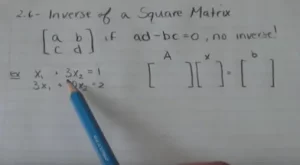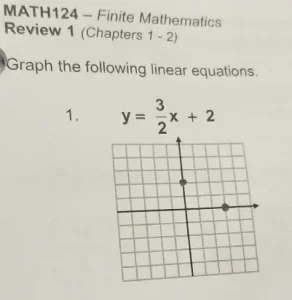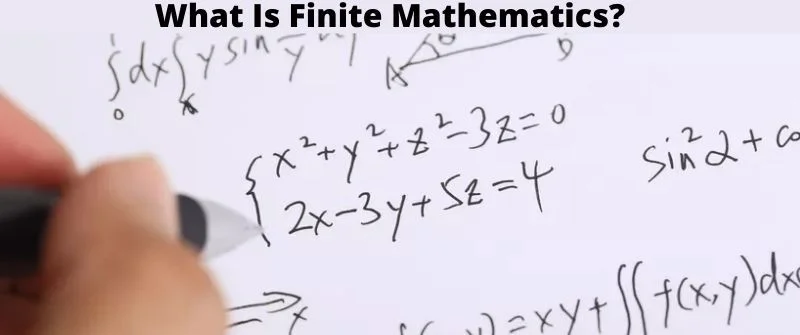Finite math is any form of mathematics that comes before calculus. In a typical finite math class, the tutor equips learners with adequate information that will enable them to apply mathematical analysis when they are outside class.
This means they can use their knowledge in the real world, at home, or in workplaces. Matrix algebra, discrete math, probability, and statistics are the major topics students cover in finite math.
How Useful is Finite Mathematics-Applications in Real Life
When you are studying finite mathematics in class, the results are numerous. You can master useful ways of counting, calculating, addition, subtraction, multiplication, and division.
Subsequently, it means that if you are successful in finite math, the information you gain will be very significant in the real world.
Nonetheless, bear in mind that this does not necessarily make you ready to tackle a full calculus class.
When you study finite mathematics, you can explore different mathematics concepts that are directly or indirectly related to discrete mathematics.
In other words, you use the concepts of this subject area to know how they can apply in computer science or other related fields.

If you are a student who does want to pursue a course that does not require calculus, finite mathematics should be your focus.
Notable courses such as history, music, art, English, and childhood education do not require the knowledge of calculus.
Therefore, finite mathematics will be important if you opt for it as your high school mathematics credit.
In the case of a career in computer science, finite mathematics comes in handy. In this case, it can act as a supplementary course for learners who want to pursue a career in this field.
Finite math is a plausible non-calculus course that presents the relevance of mathematics and its meaningfulness in daily life.
Perhaps the main importance of this subject is to enable learners to establish how the significance of mathematics is applicable in solving various problems. These are situations that you can encounter in the present complex society.
The major areas of study in this subject are all important in the fast-growing technological world. A notable range of topics such as election theory, logic, counting methods, information processing, and division are all relevant to real-world problems.
In logic study, students learn how not only to reorganize but also to develop logical arguments. At the end, they can effectively apply the principles of logic to solve real-life problems.
In graph theory, there are crucial applications that give students a chance to master mathematical structures. When they acquire this type of knowledge, students can tackle real-world problems and be in a position to make informed decisions.
Applications in division and election theory are also significant sections you study in finite mathematics. These applications give students decision-making abilities to use mathematics as a way of shaping society.
Real-life applications of finite mathematics are endless. Insurers use this knowledge to calculate the risks and prices of different insurance products.
Far from that, analysis of statistical information that is given during census largely relies on finite mathematics. Other notable applications include signal processing, tracking of submarines, speech recognition, and radar track initiation.
All these rely on the knowledge you get from probability and statistics subjects of finite mathematics.
Is Finite Mathematics Easy or Hard?
For a class that does not take finite mathematics seriously, the failure rate is likely to be high.
However, the performance of the student in other previous math classes will influence the current performance in finite mathematics.
Also, if you have a professor who is not effective in teaching, there are possibilities you will find the class to be difficult.
The difficulty of finite mathematics largely relies on how much math you have done previously. For instance, students who have done well in algebra 1&2, as well as other math classes, are likely to do well in finite math.
In addition to this, if you did not take many mathematics classes while in high school, finite math can prove difficult when you study it in college.
If you did poorly in high school math classes and struggled in algebra, there is no doubt that you will have a hard in finite math. Is it harder compared to other branches of mathematics?

The difficulty of finite math highly depends on the teaching mechanism. The availability of a good professor who is willing to explain concepts professionally can play an important role.
In outline, a professor will dictate the pace of the finite mathematics class. The professor also has to establish what goes on in exams and the amount of homework students get.
While some explain study guides in detail, others will let you learn everything from the books.
That said, it is advisable to choose a good professor who can handle classes in a manner that will make it easy for you to learn finite mathematics.
Possibly, check the professor’s previous ratings from other students.
What’s more, if you have a good understanding of calculus, pre-calculus and finite mathematics will not give you a hard time.
However, all the knowledge in calculus will not be helpful if you do not find it necessary to study.
Even if you have a solid foundation in mathematics, hard work throughout the semester will help you to pass finite mathematics.
Develop the tendency of studying even outside the class and be able to retain the information effectively.
How to Study Finite Mathematics
1. Early Semester Planning
Studying finite math can become easier if you plan your semester appropriately. This planning should be done during the first week when classes begin.
This way, you can foresee potential difficult sessions ahead. Ensure you meet all class deadlines and assignment submissions so that you remain level with other students. It will also make it easy to know which subject area needs more attention.
2. Take Homework Seriously
In finite mathematics, there is heavy homework that students expect. As a student, you have to take your homework very seriously. Possibly, work closely with your tutors in areas where you do not understand.
If you do well in your homework, you can easily get better grades because you will have a better understanding of all subjects.
Good concentration in homework is the best way to make up for previous poor results. You can also make use of online resources such as YouTube and Google to study more areas where you are struggling.
3. Read Multiple Books and Understand
Students need to read books and understand them before they can begin to tackle problems. Do not rely solely on the information you are taught in class by your teacher.

The best approach is to read more books to cover areas where the teacher might have skipped important information.
Understanding all materials from books is important because examinations are always based on book material and not what teachers taught.
Cover all the relevant chapters and seek assistance from your teacher on areas that you do not understand.
4. Seek Help when you are Stuck
Professors are always there to help if you need help. Seeking clarifications from them will enable you to avoid gaps in the finite math knowledge you gain.
Reread all the chapters that you are struggling to understand. With lecture notes and YouTube tutorials, you will eventually understand.
5. Prioritize the Teacher’s Material
The vital materials that professors emphasize are likely to appear in the exam.
Therefore, try and give these materials priority and understand everything. Master all the study guides and use group discussions to understand even better.

Joseph is a freelance journalist and a part-time writer with a particular interest in the gig economy. He writes about schooling, college life, and changing trends in education. When not writing, Joseph is hiking or playing chess.
